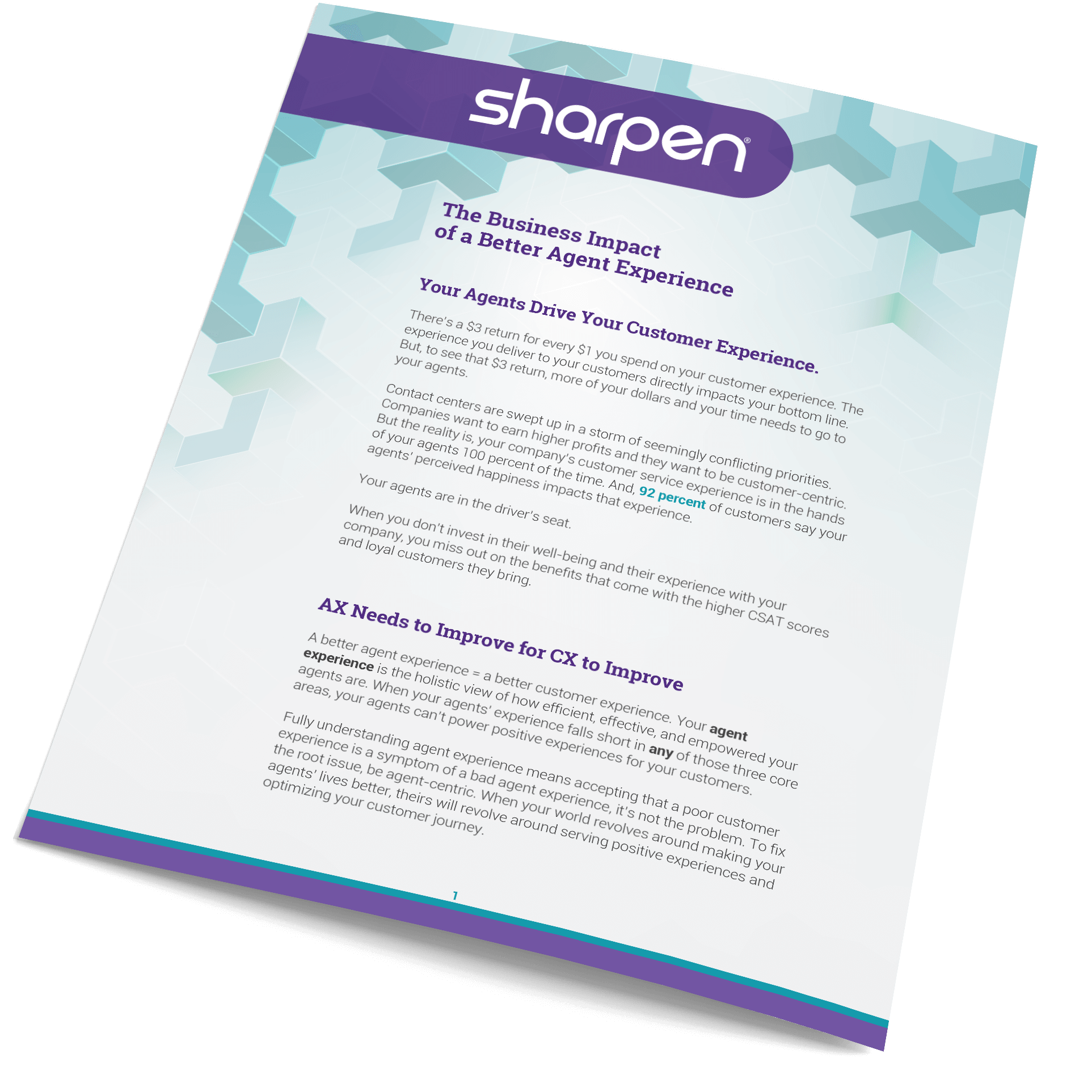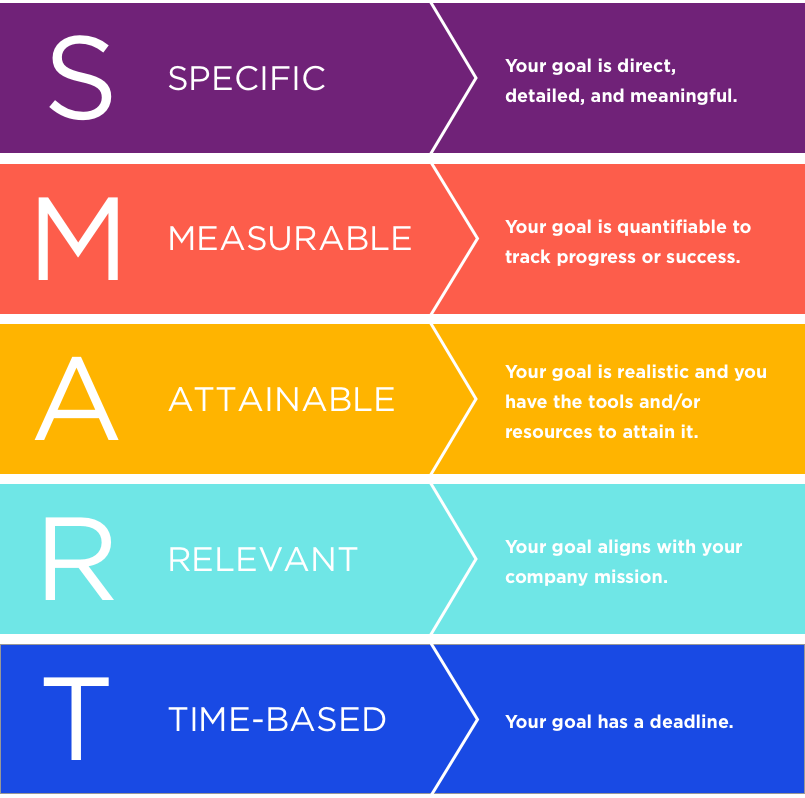
Why Performance Management and Employee Development go Hand in Hand in the Best Call Centers
Your agents’ attitudes and feelings about their jobs are the key influencers of their success. In fact, 23% of contact center leaders said employees who feel empowered to hand out custom customer resolutions are more satisfied in their roles. (And satisfied agents perform better.)
Your company’s success depends on your agents’ performance. But, your agents can only do their best work when they feel supported in their roles. Your agents need the right tools to help them do their jobs. They need ongoing training and real, obtainable opportunities for advancement. As you look to level up your call center performance, agent development needs to live on your priority list.
Performance management is your way to keep a pulse on how your agents are doing during interactions. What impact are they making on your customers? And, how do their conversations contribute to a better overall customer experience?
You use performance management to increase agent efficiency and keep target metrics in check for better customer service. Plus, it helps you to clarify goals and give your agents visibility into their progress toward those goals. And, tangible performance data helps agents improve key metrics and performance day after day.
But, performance management focuses narrowly on those hardened contact center KPIs. And really, only on the metrics that impact your company’s wallet.
Stepping beyond the tri-fold for a minute, think bigger. Look at the larger need to focus on your people and how they impact customers. With empowerment topping the charts as the most impactful piece of the agent experience, managing with humanity demands your attention. To keep agents happy, improve your contact center turnover rate, and fix customer satisfaction, you need to put people first.
“Maintaining the human touch remains a vital focus for contact centers, which means investment into agent empowerment is utterly essential. An organization cannot successfully connect with customers if it does not empower those responsible for making the connections.”
– Brian Cantor, Principal Analyst, CCW Digital
Employee development adds a dash of humanity to your performance management strategy.
It narrows in on your employees’ ultimate goals, whether those goals live within the walls of your call center (real or metaphorical) or not. When you focus on your agents’ future, you show you’re dedicated to them as people. This creates a sense of community and action among your team. So everyone knows they’re not just there as a way to drive metrics, but to make a real impact on your customers and develop themselves, too.
When you challenge your agents to think beyond today’s tasks, you create the ultimate brain teaser. They begin to think differently about their roles and how they help customers. They push beyond their queue and go into discovery-mode to find new ways to solve problems and hit goals. Next thing you know, it’s like you’re watching an episode of Animorphs as your agents shape-shift into rock star performers because you empowered them to think big and act on it.
So, let’s walk through how you can weave employee development into your performance management plan. You’ll be glad you did.
Let your 1:1s improve performance management and employee development
Ask agents to bring topics to the table about current projects, interactions they’ve struggled with, and metrics they’re having a tough time hitting. But, leave time in your conversation to bring up goals and plant the seed for larger, career-pathing conversations.
This is your space to foster dialogue about your agents’ needs, so you can build a productive contact center. It’s not an interrogation to drown them with performance feedback and questions on why they missed handle times. Yes, you need to address performance in 1:1s and mention red flags you’ve seen, but don’t harp only on the day-to-day. Use these conversations to point back to larger goals and future development.
[Read Next] How to invest in each of your agent’s career growth and development
Train your agents daily
The way most call center leaders train isn’t working. They piece together time between meetings to pull historical data, look through a few interactions sporadically, and plop feedback into a spreadsheet – in a format that might jive with their brain or might not.
What’s worse? Scooping up feedback after reviewing random interactions, then sitting on it until your next 1:1.
Maybe it’s a week from now or maybe it’s in a month but by the time the conversation circles around, your agent has almost certainly erased the interaction from their mind. So now, they don’t have the context they need to understand your constructive criticism, let alone act on it. Plus, if it’s been a month, that bad behavior now morphed into a bad habit that’s going to take more time and training to fix. That’s a lot of resources spent on training that’s largely ineffective.
[Learn More] Improve your training today with Sharpen’s quality management tools
Instead, slip in-line feedback into your performance management plan. Studies show, shorter training modules improve information retention by 20%. In-line training and contextual feedback give you time to coach every. single. day. And, you can even set thresholds so bots scan interactions for you, serving you the interactions that meet your criteria. Then, you can leave your feedback comment-style in the interactions and send them straight to your agents’ queue.
And when you see agent KPIs trending down in certain areas, you can pop longer lessons in their queue for deeper growth and development. You’re spending time developing your agents where they need help, and you’re improving their performance by quickly squashing the chance of recurring mistakes.
Create Individualized 30-60-and-90-day plans for your agents
Pick one goal for each timeframe, then map out what tasks and projects will help your agents meet their employee development & performance goals. Rally back together at the end of the 30, 60, and 90-day time periods to review your agents’ outcomes. Use that time to address performance metrics and spark conversations about long-term goals.
It’s your job as a call center manager to delegate tasks and divvy up your team’s workload in a way that benefits each of your agents. If you know your agent, Savannah, wants to be a manager herself someday, loop her in to help lead a team meeting and review goals one day. Or, maybe let her review a handful of calls and share her feedback with you. On the flip side, if Tom wants to be a software developer down the line, then send him tech-focused interactions and bugs so he can get more familiar with the inner-workings of the product side of things.
With your timed plans mapped out, create benchmarks to measure them
Create benchmarks for employee development that revolve around hitting key performance goals. For instance, if Savannah’s 90-day target is focused on giving peer feedback, then what’s a SMART goal you can set together to measure her performance (and her impact) at the end of those 90 days?
Let’s say you set a SMART goal to review 10 peer interactions per week and return feedback to her teammates. When her three months are up, Savannah can check her progress and see how she’s tracked toward her larger quarterly goals. Her performance-based goals were designed with her career path in mind. Knowing that Savannah wants to be a future manager, you passed off management-related tasks to develop her skill set, but you still gave her obtainable metrics to keep track of her performance along the way.
Helping your agents reach milestones gives them the confidence and practice they need to reach their career goals. And, you push them to think about how their daily actions impact their future.
[Read Next] 5 steps to creating a strategy that meets call center performance goals
Put long-term goal conversations on the books
It’s easy to name-drop conversations about goals in your 1:1 meetings and never actually schedule the time to have those conversations. Take a few minutes to put time on your calendar to kick off long-term goals and career conversations. Even if you block out an hour of time two months from now, at least you have a dedicated spot on your calendar.
Put some context in the meeting invitation, too. What types of questions should your agents come prepared to answer? When you say long-term goals, some agents will think long-term means one year from now, and others will think long-term means their life-long career dreams.
Set the tone and nail down the details you want to discuss, so agents can prepare. Cover the basics up front and make some room in your schedule. You’ll have a productive conversation with actionable takeaways to help your agents grow their careers.
Flip your performance management strategy to use data for accountability, not as the ultimate authority to regulate your agents’ performance. Development initiatives positively impact your employee experience. Then, they hand that value right back to your company with reduced employee turnover (and all those pesky costs), higher morale, greater productivity, and happier, loyal customers.
[Download Now] 52 questions to ask agents to improve job performance and satisfaction
We originally published this post on December 4, 2018, and we updated it for new insight on February 25, 2021.



